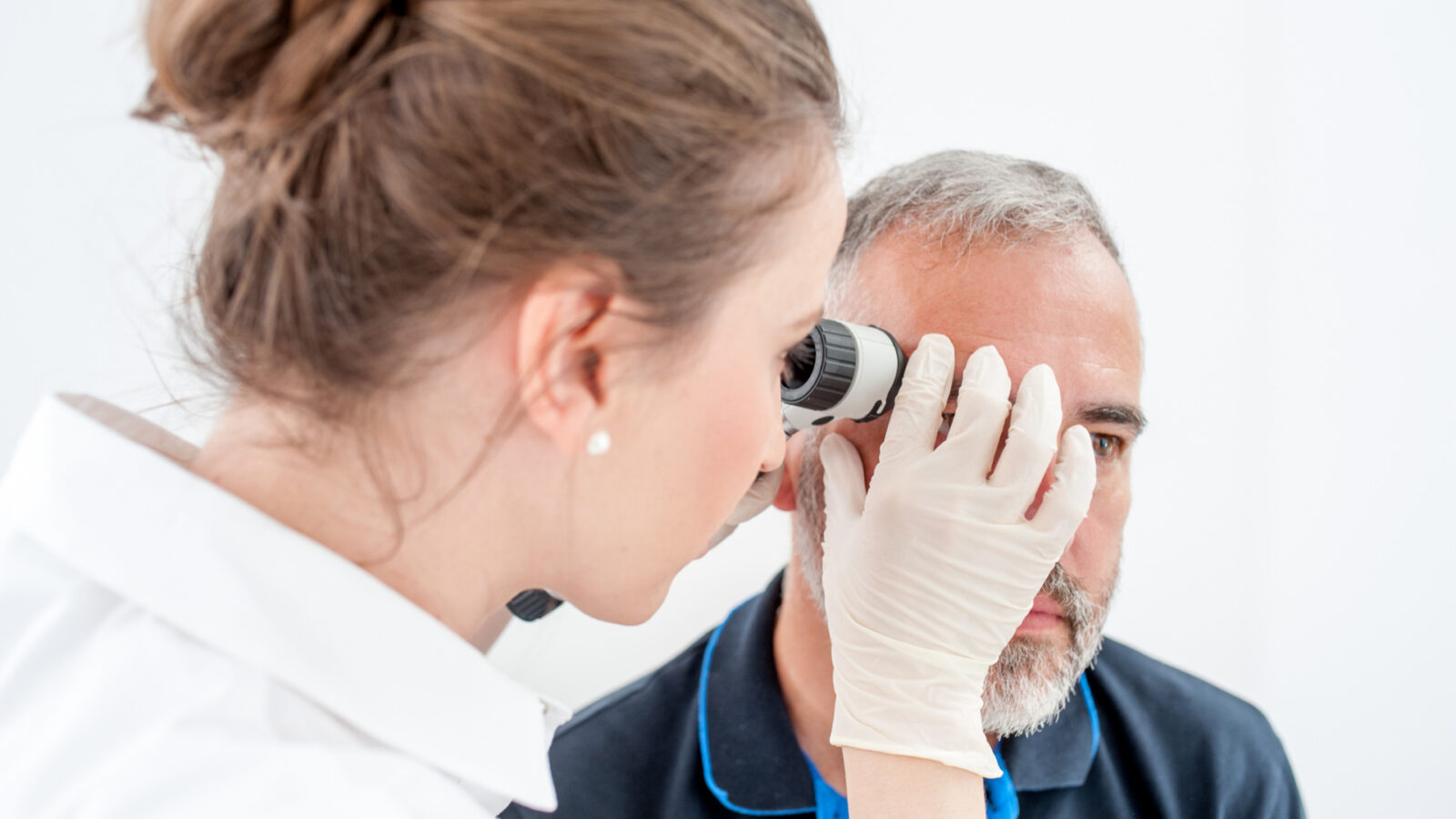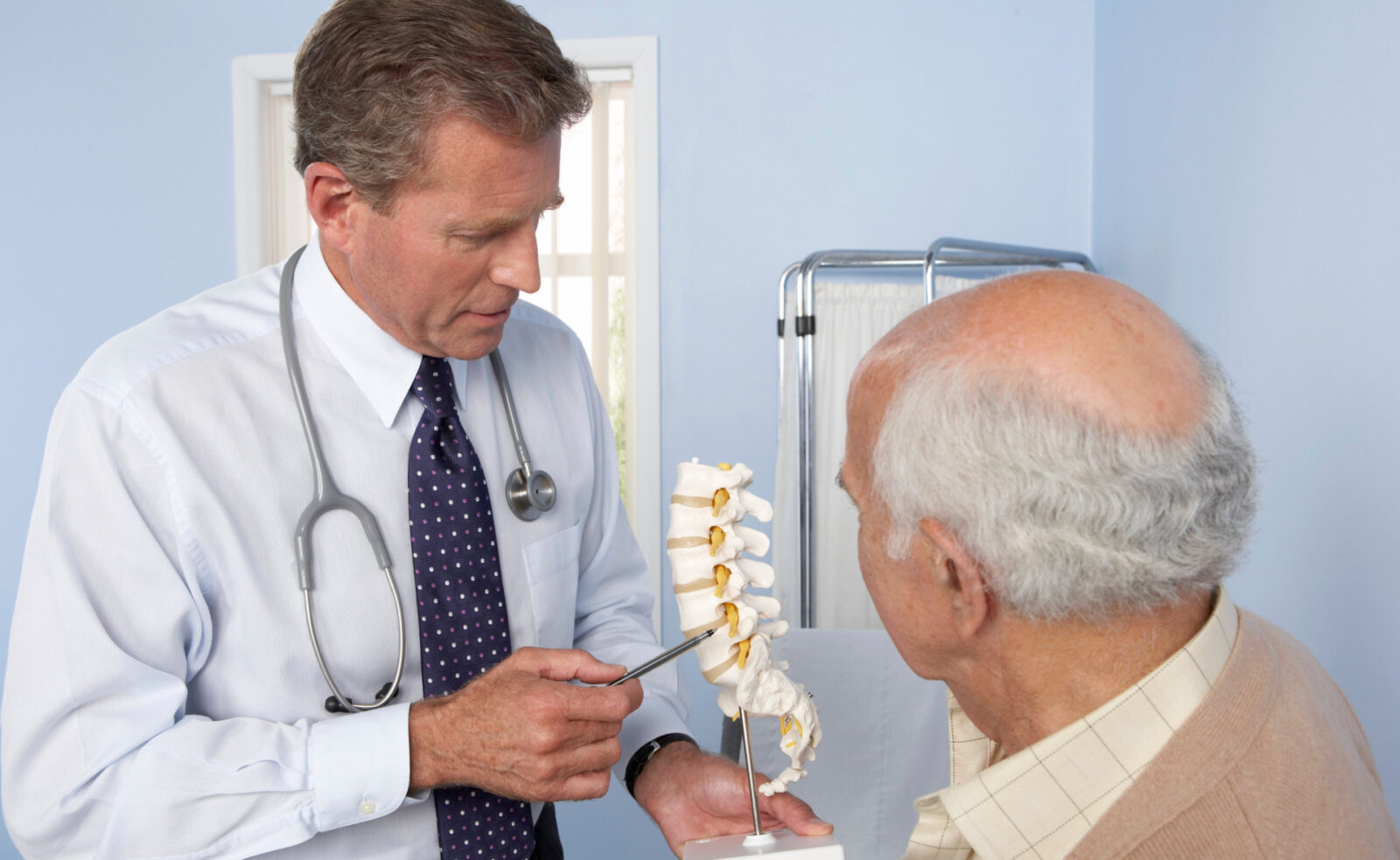
As you reach your 60s and enter your golden years, you have the advantage of gaining wisdom, gaining experience, and having a broader perspective, as well as more time to pursue hobbies, travel, and spend time with loved ones.
Additionally, many older adults find a sense of peace and contentment in their later years.
However, with age also comes an increase in the number of health ailments, and alongside such ailments is the need for regular medical testing and check-ups. Now is the time to feel good, retain your independence and feel happy and healthy but in order to do that you need to take charge of your health and ensure you are receiving necessary health checks and tests.
Alarmingly, research conducted previously by Healthy Male, a national organisation that provides information for men’s health, found that up to one-third of men indicated they would not seek information about private health issues such as erectile dysfunction, loss of libido, urinary tract infections, and sexually transmitted diseases.
Of those surveyed, 13 per cent claimed the reason for not seeking information regarding serious health issues was due to never talking about health issues and not feeling comfortable when talking about health.
Healthy Male CEO Simon von Saldern previously spoke with Starts at 60 regarding men’s health and said that although many men attempt to remain in charge of several aspects of their lives, this unfortunately “doesn’t always extend to their health”.
“The idea of being perceived as weak for what should be basic health-seeking behaviours is a stigma Healthy Male wants to eliminate,” he said.
“Men must seek support early in response to their health and not wait until the health becomes problematic. Addressing any misconception that asking for help is a sign of weakness and encouraging men to make informed decisions on evidence-based information, are a few ways we can encourage men to understand and overcome these barriers and prioritise their health.
“Not acting on your health and health concerns only has one outcome and it’s never good. Too many guys say ‘I know what they’re going to tell me’ and then do nothing. You owe it to yourself to be as healthy as you can be. You also owe it to your family and friends.”
Von Saldern highlights the importance of early intervention when a health problem rears its ugly head, but also stressed that it’s vital for over 60s to closely monitor health in order to prevent the progression of common health problems that present in older age.
“Men over 60 should have an annual check-up booked with their GP – getting on top of changes and issues early is the key. The GP will do things such as monitor your blood pressure, cholesterol, general heart health etc. After 65 it’s a good idea to get a hearing test annually and you should have, for some time now, been getting your eyes tested annually,” von Saldern explained.
“And of course keeping active and ensuring that you have good social connections is really important. Stay active and stay engaged. And if you are not already then get active and get engaged.
“Movement is one of the key ingredients to good health as is social engagement. Loneliness is a growing epidemic in men over 60 and has serious impacts on your health so join a club, group or just try something new that involves people.”
Medical expert Dr Vivek Eranki, who has worked in emergency departments and across a broad range of medical fields, shared von Saldern’s sentiments, pointing out that “health problems become more prevalent as people age”.
“Basically, our lifestyle catches up with us. As men turn 60 and older, the RACGP recommends that they visit their GP for regular check-ups and also address specific potential issues in relation to cardiac problems, erectile dysfunction, prostate cancer, incontinence, and cancer specifically bladder cancer, bowel cancer, as well as chronic diseases such as diabetes,” he said.
Given the importance of keeping a watchful eye for signs and symptoms of common health issues, Starts at 60 examined some of the most common health ailments impacting men over 60, the symptoms to be on the lookout out for, how to improve men’s health, and what to do if you suspect your health isn’t at its best.

According to the Client Prostate Cancer Foundation of Australia, “prostate cancer is the most commonly diagnosed cancer in Australia and the most commonly diagnosed cancer among Australian men.”
66 Australian men are diagnosed each day with prostate cancer, and about 10 men will die each day. 24,217 Australian men were forecast to be diagnosed with prostate cancer in 2022 with 3,507 deaths.
Some symptoms to be on the lookout for are experiencing pain during urination, frequent urination, blood in the urine or semen, a weak stream, and pain in the back or pelvis.
Age is a common risk factor for prostate cancer, with the risk increasing after the age of 50. However a family history of cancer, particularly a male relative diagnosed with prostate cancer before 60 can increase the chances of developing the disease.
Rus Suleman is one such individual whose risk for prostate cancer increased with age. Although he had been having yearly blood tests since the age of 40, after time he let the tests lapse and was diagnosed with prostate cancer.
His wife Anita said unlike with Pap smears, men don’t receive a letter in the mail to remind them to get tested.
“He had no symptoms – nothing – and it was aggressive. Rus knew he was a risk but he let the testing laps for three years during covid and when he finally tested again the results were through the roof,” Anita said.
Rus underwent a radical prostatectomy 12 months ago but it has left him with ongoing issues. Anita has called for more to be done to encourage men to have yearly blood tests, just like women are reminded about mammograms and Pap tests.
“I’m all about equality, and if we can do this for women and raise awareness and encourage testing and early detection, then we should be doing the same for men,” Anita said.
“Prostate cancer is Australia’s most common cancer and we’re much better now at knowing how to treat it.”
There are two common methods when testing for prostate cancer, the first is a prostate-specific antigen (PSA) blood test and the other is a digital rectal examination (DRE). The recommendation is to have a PSA blood test every two years from age 50 to age 69. If you have a family history of prostate cancer it’s recommended to get tested earlier.

Heart disease is a term used to describe a group of conditions that includes coronary heart disease, arrhythmias, heart failure and valve disease.
Coronary Heart Disease (CHD) is the leading cause of death in Australia, with deaths from CHD representing 78,052 years of potential life lost in Australia, according to the Heart Foundation.
The disease is more common in men with 3.2 percent reported living with the condition compared to 1.7 per cent of women, twice as many males die from coronary heart disease compared to females.
Alarmingly a survey of 1,000 Australians conducted by the Heart Foundation found that 64 percent of people aged between 45 and 74 had not had a Heart Health Check through their GP in the past two years, despite more than half of that cohort having either high blood pressure, high cholesterol, diabetes, or being told that they are at high risk of heart disease by a doctor.
Managing Director and Cardiologist at Melbourne Heart Care, Dr David Adam explains that “the typical symptoms to watch for” in regard to heard disease “are chest pain or tightness (usually worse with activity, but not always), being more easily short of breath, palpitations (an awareness of your heart racing or beating erratically) or dizzy spells.”
“With regard to chest pains, this can also be more obvious as arm, neck or jaw pain. Some patients even say it’s not a pain, it’s more a tightness or weight on their chest,” he says.
“Unfortunately, some people assume that because a heart attack is a serious problem, any pain they experience would be quite severe, but that’s not necessarily true. Sometimes it’s relatively mild and like indigestion.
“It’s always best to get it checked out. We’d much rather send someone home with the good news they are fine than have someone present to hospital 12 hours after the onset of their heart attack, as our treatments are much less effective then.”
Managing blood pressure and cholesterol is crucial to maintaining heart health, Adam suggests “a good GP is the best guide here as it will vary with your circumstances”.
“The first tests are to help work out what risk factors the person has. This will mean checking blood pressure, cholesterol, and blood sugar (for diabetes). Once we have this information, some people, especially if they are at intermediate or greater risk of heart disease may benefit from a further tests,” Adam explains.
“These could include a CT scan looking for calcium in the heart arteries (as a marker of cholesterol build up) or stress tests.”
When it comes to improving cardiovascular health, Adam advises that “the five key principles here are healthy weight, healthy diet, regular activity, take your tablets (if prescribed), and don’t smoke.”
“There is much debate about diet, but generally speaking for most people the issue is not knowing what to eat (or not eat), it’s doing it. More vegetables, less saturated fat, and watch the portion sizes,” he says.
“In other words, don’t eat too much at meals, and avoid a lot of snacking. In terms of activity, do something that gets you moving, gets your heart rate up and has you breathing more heavily (but not gasping for breath).
“Whether that is walking, swimming, cycling, resistance training (eg weights), pilates, yoga, etc it really doesn’t matter. So long as you are running the engine faster for at least 30 minutes 3 times a week. This is not just good for your heart, but also you brain, joints, immune system and mental health.”
According to WebMD it’s best to check your blood pressure at least once every couple of years, more frequent checks should be conducted if you suffer from other health conditions. Adults should have a cholesterol check at least once every four to six years.

Melanoma is the third most common cancer in Australians and accounts for around 80 per cent of all newly diagnosed cancers among Australians.
It’s important to become familiar with the look of your skin and remain vigilant to any changes. The sooner a skin cancer can be identified the greater the chance of avoiding surgery to remove it.
Cancer Council Australia CEO, Professor Tanya Buchanan spoke of the importance of regular self check and encouraged “Australians to develop a regular habit of checking their skin, including skin not normally exposed to the sun, for new spots and changes to existing freckles or moles”.
“Cancer Council recommends that if anyone notices anything new, unusual or changing, they go to the GP to get it checked out. Skin cancers can often be diagnosed and managed by a GP,” Buchanan said.
“If someone has a skin cancer that requires further treatment, a GP may refer them to a specialist such as a dermatologist.”
Buchanan stressed the importance of skin checks but explained that it’s just one piece of the puzzle when it comes to managing your risk of skin cancer.
“Whilst skin checks are important, it’s also essential to think about prevention,” she said.
“It’s never too late to be SunSmart. UV damage is cumulative and UV exposure adds up over time, contributing to your long-term risk of skin cancer. However, by using all five forms of sun protection, you’ll protect your skin and prevent further sun damage adding up.
“That’s why we recommend you Slip, Slop, Slap, Seek and Slide whenever the UV is 3 or above no matter your age!”

Over 1 million Australians have osteoporosis, among those aged 50 years and over 66 per cent have osteoporosis or osteopenia.
People 50 years and over are most at risk of developing osteoporosis. As well as age, the risk of developing osteoporosis increases in people who have low calcium and Vitamin D intake, family history of the condition, low activity levels, smoking and excessive alcohol intake. Osteoporosis is often referred to as the ‘silent disease’ given there are usually no obvious symptoms until a fracture occurs.
It occurs when our bones lose minerals, such as calcium, more quickly than the body can replace them, resulting in a loss of bone density. An adequate intake of vitamin D and calcium alongside regular physical activity can help maintain healthy bones.
Healthy Bones Australia recommends “women and men over 50 with risk factors for osteoporosis need a bone check up with a bone density scan”. Your GP can provide a referral for a bone density scan. If scan the result shows osteopenia then a scan every one to five years is required, if the results indicate osteoporosis then a scan will be required every one to two years.

Each year, about 15,500 Australians are diagnosed with bowel cancer and although it is most common in people over 50, it can develop at any age.
Bowel cancer claims the lives of 5,255 people a year and as the risk of developing the disease increases with age it becomes crucial to take the appropriate steps to prevent this malicious cancer from forming.
The most common symptoms of bowel cancer include a change in bowel habits such as diarrhea and constipation. Other warning signs to be on the lookout for are blood in the stool, abdominal pain, unexplained weight loss, anal or rectal pain, fatigue, as well as bloating or cramping.
Although these are some of the symptoms often associated with bowel cancer, it’s important to note that many people with bowel cancer experience no symptoms in the early stages of the disease.
Therefore regular medical checks are crucial to ensure the early detection of bowel cancer and greater treatment outcomes. The National Bowel Cancer Screening Program aims to do just that by reducing illness and death from bowel cancer by helping detect the early signs of the disease using a free, simple test that can be done at home.
Dr Nick Musgrave, Anatomical Pathologist and Ambassador for Pathology Awareness Australia said “all types of cancer are most treatable when detected early” and further stressed the importance of the National Bowel Cancer Screening Program.
“Even if you feel well and have a healthy lifestyle it’s important to participate in screening. Unfortunately, not everyone is even aware of the bowel screening program. Currently, participation in the program remains below 45% which is a disappointing result. I would urge people over 50 to participate in screening themselves and also to encourage their family and friends to do so. It might seem like an uncomfortable topic but you could save someone’s life,” he said.
“The reason that this is so important is that a bowel cancer that is diagnosed early has a very good chance of being cured. Unfortunately, cancer that is diagnosed late and that has spread to other organs is only cured in a small percentage of cases. So diagnosing bowel cancer early is critical.
“The test is simple for the patient, and they can collect their sample without leaving home and then post it to the lab.”
This is by no means an exhaustive list of the health conditions that men in their 60s should be on the lookout for, which is why Eranki “strongly recommends” men over 60 “engage the services of a good General Practitioner”.
“A GP acts as the ‘captain of your health’ by liaising with and managing various referrals. It is important to establish a good doctor-patient relationship with your GP so your GP can consider all the available information prior to making decisions,” he said.
“While doctors are trained, it is important that men are vigilant as well. Regular full blood tests are important and help to detect issues even before they manifest. Many issues including cancer can be treated with good success if they are identified early.”
IMPORTANT LEGAL INFO This article is of a general nature and FYI only, because it doesn’t take into account your personal health requirements or existing medical conditions. That means it’s not personalised health advice and shouldn’t be relied upon as if it is. Before making a health-related decision, you should work out if the info is appropriate for your situation and get professional medical advice.